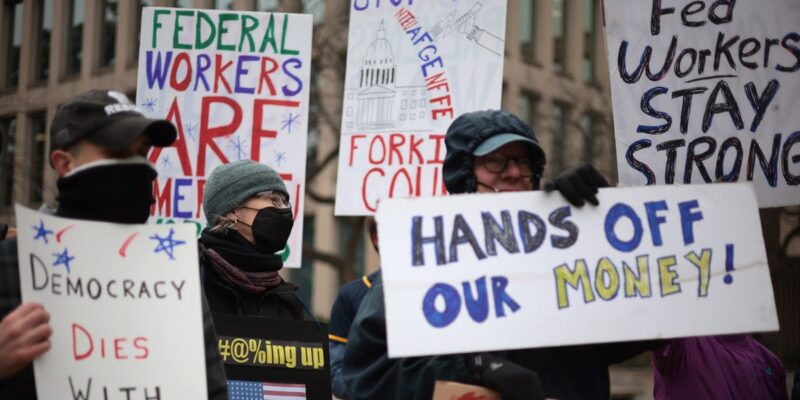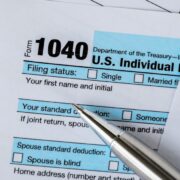
Thousands of federal workers fired over the past week by the Trump administration will likely be eligible for unemployment benefits, which the federal government is required to pay for, along with other federal assistance the workers may now be eligible to receive, like food stamps or Medicaid.
State agencies will determine on a case-by-case basis whether an employee is eligible for unemployment. But generally, workers can receive unemployment benefits even when an employer claims they were fired for poor performance, as the Trump administration stated in letters obtained by NBC News that were sent to thousands of federal workers informing them of their termination.
The Trump administration over the past week has been firing thousands of workers who had been on the job for less than two years. The mass terminations have affected nearly every federal agency, including those that provide essential public safety functions like the Centers for Disease Control and Prevention, the Department of Homeland Security and the Federal Aviation Administration, as well as the National Nuclear Security Administration, which designs, builds and oversees the U.S. nuclear weapons stockpile.
President Donald Trump and Elon Musk, who Trump has tapped to lead the Department of Government Efficiency, an advisory commission that is targeting government agencies for massive layoffs, have indicated that more cuts to the federal workforce will be coming.
While states administer unemployment claims, the federal government is responsible for paying the full amount for former federal employees, with the agencies they were fired from reimbursing states for the benefits paid, according to the Labor Department.
How much the federal government must pay per person will vary depending on their salary and each state’s rules, though the maximum benefit is typically around $400 a week for 26 weeks.
That could add up to millions of dollars for the federal government. In the most recent round of firings, hundreds of thousands of probationary employees could be affected, according to data from the Office of Personnel Management, although the exact number of people who will be terminated was not immediately clear.
The federal government, like any employer, can attempt to deny paying unemployment benefits even if a state determines the fired employee is eligible. But to deny the unemployment benefits, the employer would have to prove the employee committed misconduct or another action that wasn’t in the employer’s best interest, failed to show up for work or voluntarily left the job, according to the Labor Department.
In a letters sent to fired federal employees in recent days terminating their employment, the administration didn’t indicate the employees had committed any misconduct. In one letter obtained by NBC News, an employee was told they were being fired because “the Agency finds you are not fit for continued employment because your ability, knowledge and skills do not fit the Agency’s current needs, and your performance has not been adequate to justify further employment at the Agency.”
In another letter sent by the Transportation Department, employees were told that “based on your performance you have not demonstrated that your further employment at the Department of Transportation would be in the public interest.” A person familiar with the situation said many of the employees who received that letter had received positive performance reviews. The person shared a document showing some of the “exceptional” reviews that supervisors had submitted.
In Virginia, where around 8% of workers are employed by the federal government, eligibility will be determined on a case-by-case basis, and the state has put up a website to assist federal workers with questions about their eligibility, said Kerri O’Brien, a spokesperson for the Virginia Employment Commission.
The state website says that an employee may be disqualified for benefits if they quit their job without good cause or were fired for misconduct. It adds that the state will send a questionnaire to the employer, and the employee will have an opportunity to submit evidence supporting their claim before officials make a determination on benefits.
Unemployed federal workers may also be eligible for SNAP benefits, known as food stamps, from the federal government if their monthly household income and assets fall below a certain level. Each state has its own process for determining who is eligible for those benefits.
The workers can also apply for Medicaid if their income falls below a certain threshold or for federally subsidized health insurance through the Affordable Care Act health insurance exchanges.















